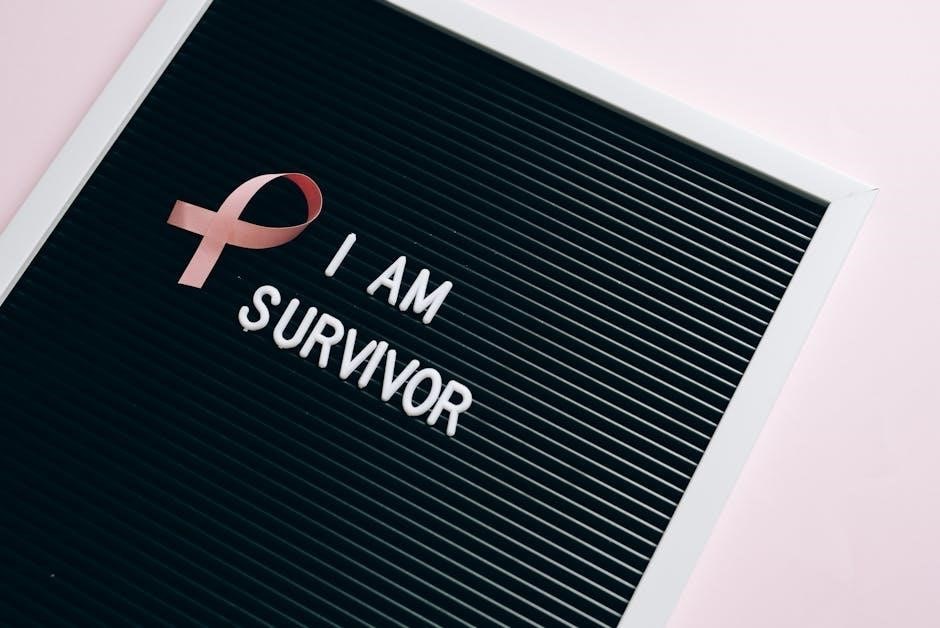Understanding Shame and Self-Hatred
Shame and self-hatred are profound emotional states that often stem from negative self-perceptions and past experiences. Shame involves feeling unworthy due to perceived flaws or mistakes.
1.1 Defining Shame and Self-Hatred
Shame is a painful emotion linked to self-criticism, while self-hatred involves intense dislike for oneself. Both disrupt mental well-being and relationships.
1.2 The Difference Between Shame and Guilt
Shame focuses on self-worth, whereas guilt pertains to regret over specific actions. Shame can lead to self-hatred, while guilt may inspire positive change.

1.3 The Root Causes of Shame and Self-Hatred
These emotions often arise from societal expectations, childhood trauma, or repeated criticism, fostering a cycle of negative self-talk and self-rejection.
Shame is a deeply painful emotion characterized by a sense of unworthiness or self-blame, often triggered by perceived flaws or past mistakes. Self-hatred, on the other hand, involves intense feelings of dislike or contempt toward oneself, stemming from negative self-perceptions. Both emotions are closely intertwined, with shame often fueling self-hatred. Shame can manifest as feelings of inadequacy or remorse, while self-hatred may lead to harmful self-criticism or self-sabotaging behaviors. Understanding these emotions is crucial for addressing their impact on mental health and relationships. By recognizing their definitions, individuals can begin to unravel the patterns that perpetuate these feelings and take steps toward healing and self-compassion.
Shame and guilt, while related, are distinct emotions. Guilt arises from remorse over a specific action or behavior, often prompting a desire to make amends. Shame, however, is rooted in self-perception, involving feelings of inadequacy or unworthiness. Unlike guilt, which focuses on “what I did,” shame centers on “who I am.” Guilt can motivate positive change, while shame often leads to self-criticism and self-hatred. Recognizing this distinction is vital, as addressing guilt may involve repairing actions, whereas overcoming shame requires healing self-perception and fostering self-compassion. Understanding these differences is key to effectively addressing both emotions in the journey toward mental well-being.
The root causes of shame and self-hatred often lie in childhood experiences, societal expectations, and traumatic events. Many individuals develop these emotions due to repeated criticism, abuse, or neglect, which can lead to internalized negative beliefs about oneself. Societal pressures to conform to certain standards or ideals can also foster feelings of inadequacy. Additionally, unresolved trauma or past mistakes may contribute to a cycle of self-blame and self-rejection. These experiences can shape self-perception, making it difficult to separate one’s worth from past events or external opinions. Understanding these underlying causes is crucial for addressing and healing from shame and self-hatred, as it allows individuals to confront the origins of their pain and work toward self-compassion and acceptance.

The Impact of Shame and Self-Hatred on Mental Health
Shame and self-hatred can severely impair mental health, leading to low self-esteem, anxiety, depression, and social withdrawal. They often hinder emotional well-being and relationships.
2.1 How Shame Affects Self-Esteem
Shame can deeply erode self-esteem by fostering feelings of inadequacy and worthlessness. When individuals experience shame, they often internalize negative beliefs about themselves, leading to self-criticism and a diminished sense of value. This emotional state can create a cycle where shame reinforces self-doubt, making it difficult to recognize one’s strengths and positive qualities. Over time, chronic shame can result in self-sabotaging behaviors and a tendency to avoid opportunities due to fear of failure or judgment. Shame also makes it harder to accept compliments or positive feedback, further lowering self-esteem. Addressing these feelings is crucial for rebuilding a healthy and compassionate self-image.
2.2 The Link Between Self-Hatred and Mental Health Disorders
Self-hatred is closely tied to various mental health disorders, including depression, anxiety, and eating disorders. It often manifests as persistent self-criticism, which can worsen symptoms of these conditions. Individuals struggling with self-hatred may experience low self-esteem, difficulty forming healthy relationships, and a heightened risk of self-destructive behaviors. This emotional state can also act as a barrier to seeking help, as feelings of worthlessness may prevent individuals from believing they deserve support. Addressing self-hatred is essential for effective treatment, as it often lies at the core of these mental health challenges. Therapy and self-compassion are key tools in breaking this cycle and fostering emotional healing.
2.3 The Role of Trauma in Developing Shame
Trauma is a significant contributor to the development of shame, as it often leaves individuals with feelings of worthlessness and self-blame. When someone experiences traumatic events, they may internalize the pain, believing they are flawed or undeserving of love. This internalization can manifest as deep-seated shame, which becomes a pervasive emotional state. Trauma disrupts a person’s ability to maintain a positive self-image, leading to self-criticism and a fear of being judged by others. Over time, this shame can become ingrained, making it challenging to form healthy relationships or practice self-compassion. Healing from trauma requires addressing these root causes of shame, often through therapy and self-reflection, to rebuild a sense of self-worth and emotional resilience.

Practical Steps to Overcome Shame and Self-Hatred
Addressing shame and self-hatred involves strategies like challenging negative thoughts, practicing self-compassion, and rewriting harmful beliefs. Techniques include journaling, mindfulness, and seeking support to foster healing.
3.1 Identifying and Challenging Negative Thought Patterns
Recognizing and confronting harmful thought patterns is crucial for overcoming shame and self-hatred. Often, these emotions stem from deeply ingrained beliefs that are overly critical or unrealistic. Start by becoming aware of your inner dialogue, especially when feelings of shame arise. Notice recurring patterns, such as self-blame or catastrophizing, which can fuel self-hatred. Challenge these thoughts by questioning their validity and replacing them with more balanced, compassionate ones. For example, instead of thinking, “I’m worthless,” try reframing it to, “I made a mistake, but I can learn from it.” Cognitive-behavioral techniques, such as journaling or mindfulness, can help you identify and rewire these patterns. Over time, this practice fosters a more forgiving and kind relationship with yourself.
3.2 Practicing Self-Compassion and Self-Forgiveness
Cultivating self-compassion and self-forgiveness is essential for healing from shame and self-hatred. Self-compassion involves treating yourself with kindness, understanding, and patience, especially during difficult times. Practice mindfulness to acknowledge your emotions without judgment. Engage in self-care activities that bring you comfort and joy. Self-forgiveness requires letting go of guilt and self-criticism, recognizing that everyone makes mistakes. Write yourself a letter of forgiveness or use affirmations like, “I am doing the best I can, and that is enough.” By embracing your humanity and accepting imperfection, you can reduce self-hatred and build a more positive relationship with yourself. Regularly practicing these techniques fosters emotional resilience and supports long-term healing.

3.3 Rewiring Your Mind: Cognitive-Behavioral Techniques
Cognitive-behavioral techniques (CBT) are powerful tools for overcoming shame and self-hatred by transforming negative thought patterns. Start by identifying distorted or unhelpful beliefs about yourself, such as “I am worthless” or “I am a failure.” Challenge these thoughts by questioning their validity and replacing them with more balanced, realistic ones. For example, remind yourself of your strengths or past successes. Behavioral experiments, such as stepping out of your comfort zone, can also help disprove harmful beliefs. Practice mindfulness to observe thoughts without judgment, and incorporate affirmations to rewire your mind with positivity. Over time, these techniques can help you develop a more compassionate and realistic self-image, reducing the grip of shame and self-hatred. Consistency is key to lasting change.

Seeking Support and Healing

Seeking support is crucial for healing from shame and self-hatred. Therapy provides professional guidance, while friends and family offer emotional support. Joining support groups fosters connection and understanding.
4.1 The Importance of Therapy and Counseling
Therapy and counseling are vital for addressing shame and self-hatred. A trained therapist helps individuals identify root causes, challenge negative thought patterns, and develop healthier self-perceptions. Through guided conversations, therapy provides a safe space to explore emotions and experiences. Licensed professionals, like Kati Morton, emphasize the role of therapy in breaking cycles of self-hatred and fostering self-compassion. Cognitive-behavioral techniques, often used in counseling, assist in rewriting harmful narratives; By addressing unresolved trauma and fostering personal growth, therapy empowers individuals to overcome shame and embrace self-love. Regular sessions can significantly improve mental health and overall well-being, offering a pathway toward healing and self-acceptance.
4.2 Building a Support Network of Friends and Family
Surrounding yourself with a supportive network of friends and family is crucial in overcoming shame and self-hatred. Sharing your feelings with trusted individuals can help you feel understood and valued. Open communication fosters empathy and reduces feelings of isolation. Friends and family can offer encouragement, helping you reframe negative self-perceptions and build confidence. Their support can also provide practical help, such as reminding you of your strengths and accomplishments. A strong support system acts as a foundation for healing, allowing you to gradually release shame and embrace self-compassion. Connecting with others who care can empower you to see yourself in a more positive light and cultivate self-love. Building this network takes time, but it is an essential step toward lasting emotional well-being.
4.3 Joining Support Groups for Shared Experiences
Joining support groups can be a powerful way to heal from shame and self-hatred. Sharing experiences with others who understand your struggles creates a sense of community and validation. Hearing others’ stories can help you feel less alone and more connected, reducing the isolating effects of shame. Support groups provide a safe space to express emotions and gain insights from others’ journeys. Many groups are facilitated by professionals, offering structured guidance and resources. They also encourage accountability and motivation, helping you stay committed to your healing process. Finding the right group, whether in-person or online, can be transformative. Actively participating in discussions and sharing your own experiences can foster growth and self-compassion. Support groups remind you that healing is possible and that you are not alone.

Maintaining Progress and Preventing Relapse

Consistency in healthy habits and self-compassion is key to sustaining progress. Mindfulness helps recognize triggers, while celebrating small victories reinforces positive change and discourages relapse.
5.1 Developing Healthy Coping Mechanisms
Healthy coping mechanisms are essential for managing emotions and preventing relapse. Techniques like mindfulness, journaling, and physical exercise help channel emotions constructively. Engaging in creative activities or talking to trusted individuals can provide relief and perspective. Practicing self-care, such as maintaining a balanced diet and adequate sleep, strengthens emotional resilience. Additionally, setting realistic goals and celebrating achievements fosters confidence and self-worth. Mindfulness practices, such as meditation or deep breathing, can help individuals stay grounded and reduce self-critical thoughts. By replacing harmful habits with positive routines, individuals can build a foundation for lasting emotional well-being and prevent the resurgence of shame and self-hatred. Consistency is key to ensuring these mechanisms become second nature and support long-term progress.
5.2 Cultivating Gratitude and Positive Affirmations
Cultivating gratitude and positive affirmations is a powerful tool for transforming negative self-perceptions. Start by acknowledging small joys daily, which shifts focus from shame to positivity. Keep a gratitude journal to document positive experiences and strengths, fostering self-appreciation. Positive affirmations, such as “I am worthy of love and respect,” can rewire the mind to embrace self-compassion. Consistency is key; repeat affirmations daily to reinforce positive self-talk. Surrounding oneself with uplifting environments and supportive people further enhances this practice. Over time, gratitude and affirmations help diminish self-hatred and shame, replacing them with a sense of self-worth and resilience. This practice not only heals emotional wounds but also fosters a more optimistic outlook on life.
5.3 Embracing Personal Growth and Self-Love

Embracing personal growth and self-love is essential for overcoming shame and self-hatred. Recognize that self-worth is not defined by past mistakes or societal expectations. Engage in activities that nurture your mind, body, and soul, such as mindfulness, creative pursuits, or exercise. Celebrate small achievements to build confidence and self-appreciation. Self-love involves treating yourself with kindness, patience, and compassion, much like you would a close friend. By fostering a growth mindset, you can transform self-criticism into opportunities for learning and development. Surround yourself with supportive individuals who encourage and uplift you. Over time, this journey of self-discovery and acceptance will replace shame with self-love, empowering you to live a fulfilling and authentic life. Consistent effort in personal growth strengthens resilience against negative emotions.
